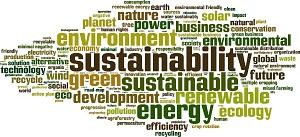
Each UN country team develops with the host Government a strategic plan to support national development priorities and strategies. The result is the UN Sustainable Development Cooperation Framework (UNSDCF). The preparation of the UNSDCF begins with a Common Country Analysis (CCA), which provides an independent, impartial and collective assessment and analysis of the country's situation.
Though CCAs have successfully incorporated the environment and climate change as a “sector”, to varying degrees, they have been less successful in integrating these issues into other sectors, such as health and governance.
In addition, transboundary and subregional dimensions – often critical for environmental protection and sustainable use of natural resources – are not sufficiently reflected in these programming documents. This may mean that national actions towards strengthening cooperation between countries are not adequately defined and, in turn, opportunities for cooperation are missed.
In response, the regional interagency Issue-based Coalition on Environment and Climate Change has issued a gap analysis that identifies these weaknesses but also highlights numerous good practices. For example, the CCA of Albania addresses the interconnections between human rights and the environment and climate change, and the Georgia CCA comprehensively describes the risk posed by climate change to agriculture.
As follow-up to the gap analysis, the Coalition has also prepared guidance on integrating the environment and climate change in processes for UNSDCFs, so that current limitations can be overcome. The guidance, which benefits from the diverse expertise of the 18 member organizations of the Coalition, looks at mainstreaming environmental and climate change considerations into the different stages of preparing the UNSDCF:
- The roadmap for a new cooperation framework
- The common country analysis
- The cooperation framework design
- The cooperation framework implementation
- Cooperation framework monitoring and evaluation
The guidance looks deeper into mainstreaming the environment and climate change into a series of development priorities: human rights, including children’s rights and the rights of women; economic and trade development, including innovations, SMEs and decent work; food security and agriculture; infrastructure and sustainable use of resources, including energy, water and waste management; quality education; good health; good governance; and disaster reduction and conflict prevention.
It will also help to address selected environment and climate change issues within the context of broader sustainable challenges: integrated water resource management; waste management and chemicals; air pollution; climate change mitigation and adaptation; and biodiversity. For each of these, the guidance provides facts demonstrating links with the UNSDCF development priorities, for example, that US$ 44 trillion of global value added (over half of the world’s GDP) is dependent on nature and its services. In addition, key Sustainable Development Goals and examples of implementing interventions, such as integrating biodiversity values into a country’s development planning, are included.
The Coalition presented the mainstreaming guidance to UN Country Teams and Resident Coordinator offices at a dedicated webinar on 1 July, with the aim of explaining how to use the guidance and asking country teams what assistance they need in applying it.
Preparation of the compendium was led by UNESCO, UNECE and UNEP, with significant inputs from the other members of the Coalition: FAO, ILO, IOM, ITU, OHCHR, UN-Habitat, UN-Women, UNDP, UNDRR, UNFCCC, UNICEF, UNOPS, WFP, WHO and WMO. The development of the compendium was supported by funding from the United Nations Development Coordination Office.
Explore key resources developed by the Coalition, including the new guidance at https://unece.org/un-cooperation-unece-region/key-resources